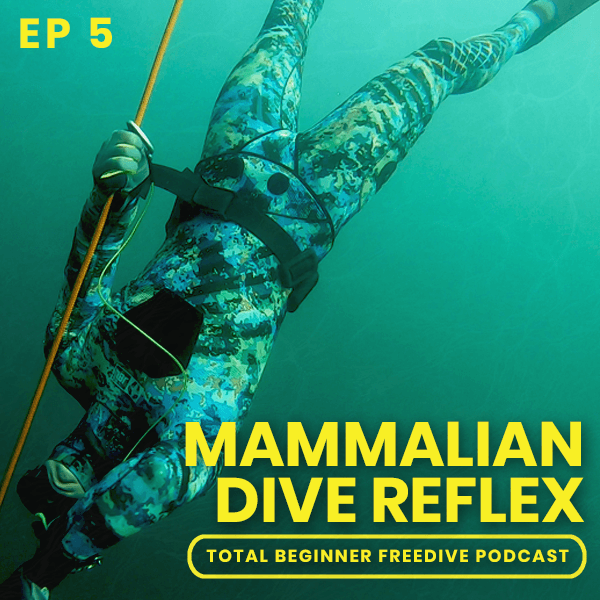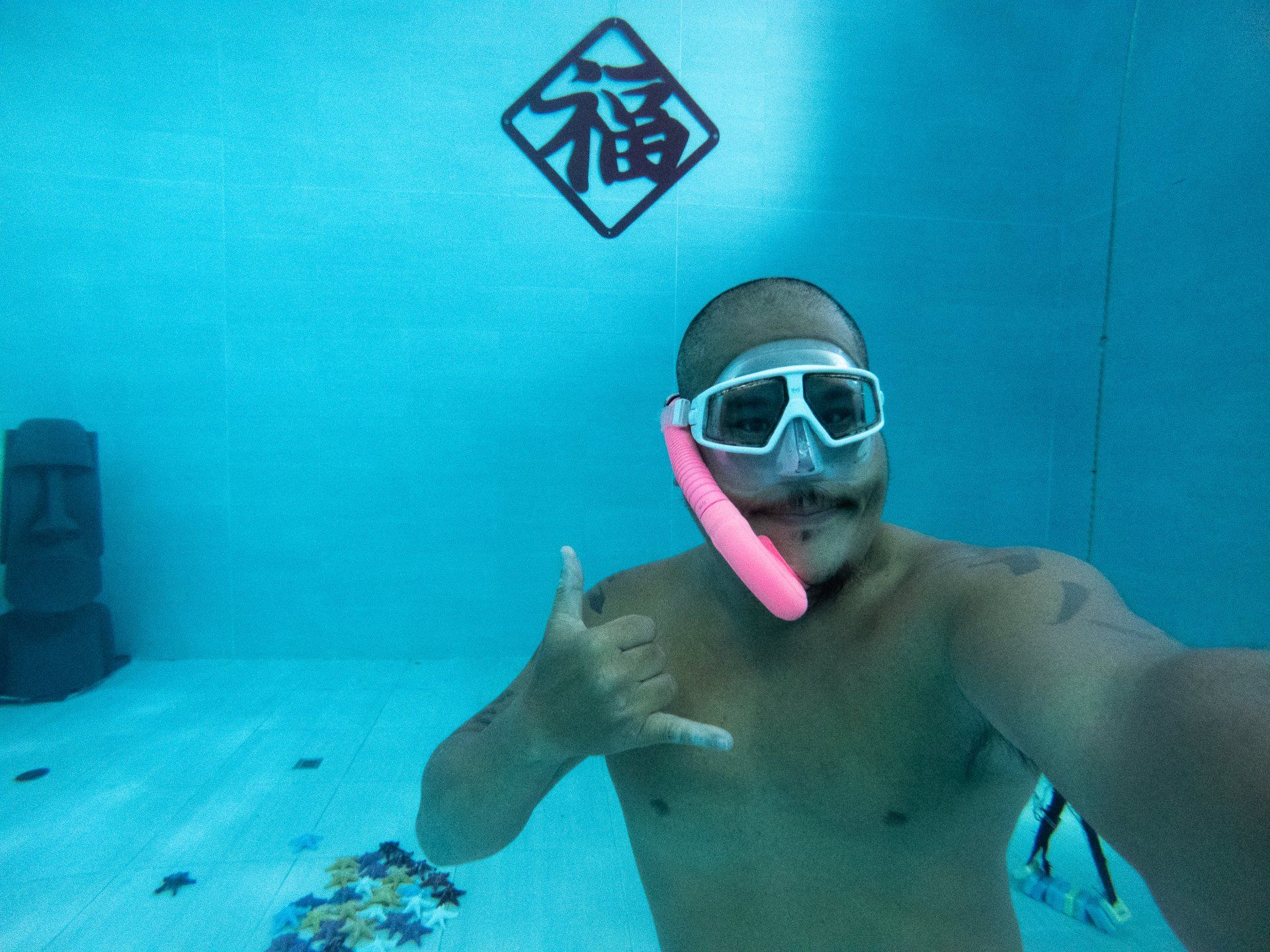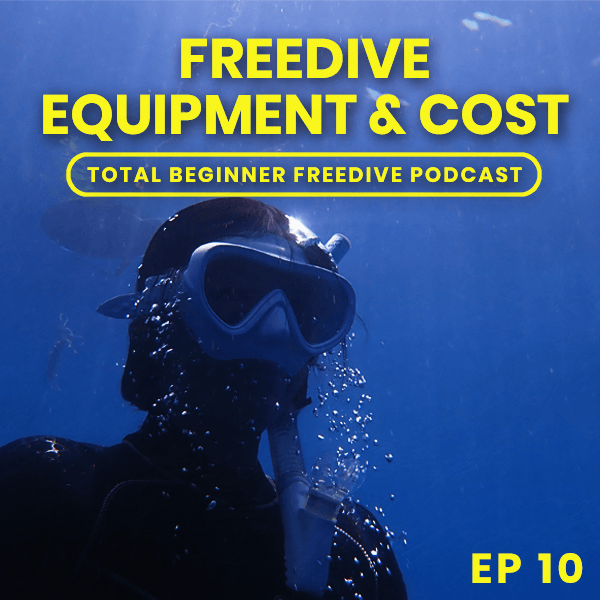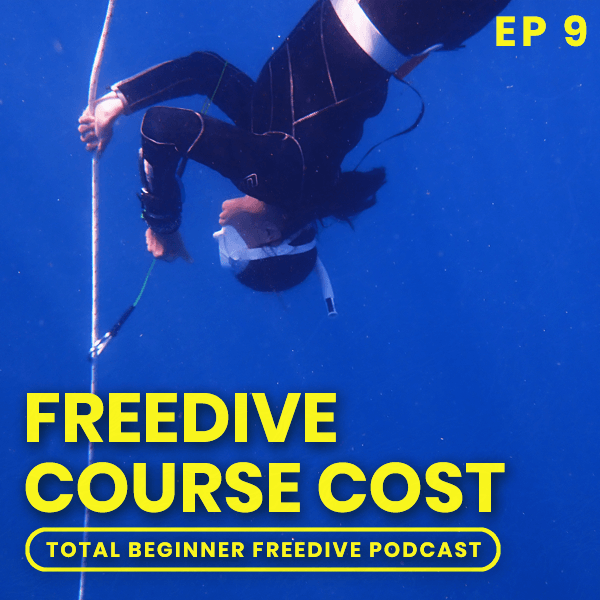Raymond Ko • July 12, 2021
Mammalian Dive Reflex

Show Notes
Did you know the adaptive physiological response that allow whales to hold their breath for hours at a time and dive thousands of meters deep is also found in humans!
In this episode you'll learn about the Mammalian Dive Reflex and how it helps us in freediving!
This podcast is brought to you by Octopus Freediving
Resources
Facebook Group
Free Beginner FAQ E-book Sign Up
Free Online Freedive Safety Course
Send episode topic ideas or questions to ray@freedivenomad.com
You can support this show by buying from our affiliates partners:
Blue Cannatine - the BEST nootropic to get my brain to function optimally after diving. 10% discount with that link
Synctuition - my favorite meditation app and I've tried A LOT
Waihana Wetsuits - the coolest looking wetsuits using eco-friendly neoprene. Use the coupon code 0OG0UZZBLP for 15% off
You Can Find Me At
My blog and where this podcast lives
Information about taking a freedive course from me in Taiwan
Freedive Nomad Instagram Account
Freedive Nomad Facebook Group
Freedive Nomad Youtube Channel
Podcast Media Kit
Transscript
Hello Future Freedivers,
Welcome to the Total Beginner Freedive Podcast brought to you by Octopus Freediving which make some of the highest quality freediving equipment there is.
This is episode 5 where we talk about the Mammalian Dive Reflex and how it helps us freedive.
JINGLE
Hello, my name is Ray aka the freedive nomad and this show’s host.
This episode we go over a big reason we as humans are able to hold our breath a lot longer than we think and that is because of the mammalian dive reflex or MDR
MDR allows sea mammals like dolphins to hold their breaths for up to ten minutes and whales for up to 1 hour. With that breath-hold whales can descend to depths of 2,000-3,000 meters.
We as humans also can access MDR but it doesn’t come quite as naturally, though it can for infants under the age of 6 months and its the MDR that gives babies the innate ability to swim.
Have you ever seen the videos of babies being tossed around and holding their breath while swimming underwater? Check out the video in the show notes.
Anyhoo, the MDR is a set of physiological changes in a mammals body which helps them deal with the water pressure at depths and decreasing oxygen levels
MDR can be triggered by splashing cold water on your face, holding your breath or, as the name says, DIVING into water.
There are several things that happen when MDR is triggered in humans:
1) Spleen contraction- the spleen holds reserve red blood cells or (RBC). When MDR kicks in the spleen will contract and release up to 25% more oxygen-rich RBCs into your bloodstream so your tissues can access them.
The Bajau people, the sea tribe in indonesia and the subject of the Netflix documentary Jago, are famous for being able to dive for several minutes to great depths to fish. They have evolved to have on average spleen size 50% larger than nearby tribes which gives them their advantage in breath holds.
2) Brachycardia - this is the fancy term for the slowing of your heart rate, on a dive your heart rate can slow up to 30% and 50% for elite divers. This is helps conserve oxygen
3) Blood shift - Your body will experience peripheral vasoconstriction where your blood vessels in your legs and arm get narrower, thus causing a "blood shift" away from your extremities and towards your torso which protects your lungs from collapsing under the increasing water pressure. The blood shift helps prioritize the heart, lungs and brain for oxygen.
4) Carotid artery dilates - the main artery to your brain is dilated to allow greater blood flow and thus oxygen to your brain to prevent blackouts.
Isn’t the human body is so amazing. The MDR is evidence that we as humans are made to be in the water.
Regular training can lead to stronger MDR to lower your heart rate even more, your spleen squeezing out more red blood cells and stronger blood shift allowing you to dive deeper and deeper.
If you want to test out an MDR and if you have a heart rate monitor like a fit bit or apple watch, lie down, put a pack of ice over your eyes and watch your heart rate drop. This is also a good way to calm yourself down after a stressful day as it’ll activate your parasympathetic nervous system.
And that’s it for today.
But before we go, I wanted to talk to you about relaxation. Your ability to relax is the biggest needle mover in improving your freediving. And a meditation practice is not only integral to a freediver’s training, but life in general.
I found meditation on my own hard cuz I’m such a spaz brain sometimes but now I use the meditation app Synctuition every day by simply putting on my headphones and listening for 25 minutes. I’m not the only one who loves it as Synctuition was the largest grossing meditation app in europe in 2020. I saw improvement in my sleep right away and my naps were amazing. For a free trial go to freedivepodcast.com/meditate.
And as always please share and review this podcast so I can reach more people like you.
Dive safe and never dive alone and maybe take that freedive course you’ve always wanted to take.





